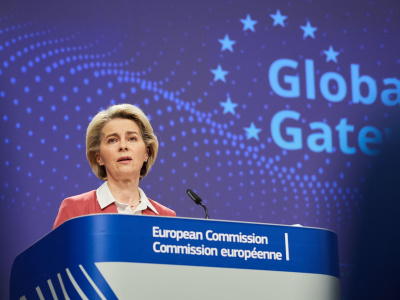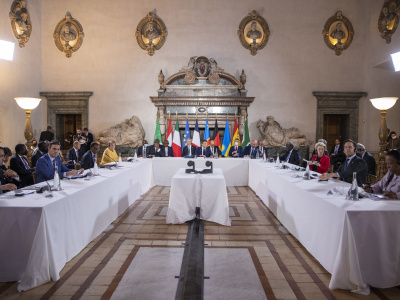
Rebooting policy dialogue
The European Union has made it clear that policy dialogue is expected to play the part of the ‘operating system’ for its international partnerships. In other words, if you take it away, programmes just won’t run. Even the newest reforms brought by the NDICI, such as the Team Europe approach, innovative financing or the administrative reform labelled as “geographisation”, need to be firmly anchored in solid national policies. Policies which the EU can hardly influence without engaging in dialogue with those partner countries that it aims at supporting. Which begs the question: Is the EU development system ready to engage meaningfully in policy dialogue?
For a long while the EU’s flagship in development cooperation was technical assistance, understood as the transfer of knowledge through exchanges that were believed to be aseptic and apolitical. Nonetheless, in the last decades a paradigm shift has been slowly unfolding along several vectors, from the negotiations on ‘Aid Effectiveness’ to the institutional changes in the EU, compounded by an ever-increasing awareness of the interdependencies among countries due to rising concerns about the fate of the planet. Even if technical and financial solutions are needed, root problems can only be addressed through policy.
Of course, this realisation is not new. Ever since the EU decided to channel a substantial portion of its aid through budget support – somewhat to honour its commitments towards the principle of ownership enshrined in the Paris Declaration – EU Delegations have been increasingly engaging in policy dialogue with partner governments. Due in part to the absence of clear methodological guidance – the only official reference remains relegated to an Annex of the budget support guidelines – and in part to the distinctive features of each country’s political context, policy dialogue has taken multiple shapes and evolved into a wide array of practice. To the point of becoming a catch-all name that makes one wonder: what do we talk about when we talk about policy dialogue?
The common factor of all these processes is their underlying purpose: influencing the partner country’s policies to deliver development outcomes. The contractual nature of the partnership implies that policy objectives need to be agreed jointly by both parties, who also agree on a set of clear policy indicators to monitor progress, as well as to ensure that the funds funnelled through national treasuries don’t end in the wrong hands.
This has naturally led to an understanding of policy dialogue as a bilateral negotiation between the donor and the aid recipient, giving way to all sorts of asymmetries, untold assumptions, and mutual prejudices. Both sides play it the best they can: on the one hand, partner governments, who have a sounder knowledge of what’s going on in their countries, tend to paint a rosy picture to guarantee the disbursement of the next tranche; on the other EU Delegations, outsiders by definition and subject to a high rate of staff turnover, risk becoming just another client that local officials do their best to keep satisfied. Frankness and honesty may well be there, but on different wavelengths.
However, in some cases EU Delegations are overcoming this governmental bias and engaging with a wider diversity of domestic actors, making their policy dialogue more inclusive and participatory and promoting deliberative processes in line with the type of multi-stakeholder partnerships outlined in Agenda 2030.
Almost unknowingly, EU Delegations hold a unique position that could be strengthened further by the Team Europe approach. Thanks to its convening power the EU can open spaces for dialogue, so that actors can come together and jointly assess potential policy solutions. In doing so they’d be encouraging mutual recognition and promoting a culture of democratic dialogue, helping to restore civic space – or preventing it from shrinking further.
Making EU policy dialogue more inclusive and participatory can actually square the circle. On the one hand, the EU can ensure the engagement of the strongest actors by building incentives through the EU programme portfolio, with the added appeal of attracting potential investments through guarantees and blending. On the other hand, the EU can provide the weaker stakeholders with capacity building and access to decision-makers, so that those who are usually sidelined can get a seat at the table. In such domestically-driven processes, the EU would play a badly needed role, namely that of a facilitator, brokering knowledge by bringing in relevant experiences and good practices to feed deliberation.
So is the EU ready to engage meaningfully in policy dialogue? It will largely depend on the EU’s capacity to go into listening mode. By letting others do the talking, especially those whose voices are seldom heard, EU Delegations can enhance the inclusiveness and participation of local decision-making processes, a function that fits neatly with the role expected from them in the framework of “geographisation”.
Indeed, instead of pretending to act as drivers of policy change, they are expected to become their catalysts, using NDICI funds to attract investments, mobilise domestic resources and strengthen key state functions. In other words, they would be creating the conditions of possibility for policy change to happen. And that is already quite something.
Sergio Rodriguez Prieto is a policy advisor at European Partnership of Democracy, a not-for-profit organisation with a global remit to support democracy, that brings together a network of 18 organisations.
The views are those of the authors and the associations they represent, and not necessarily those of ECDPM.



